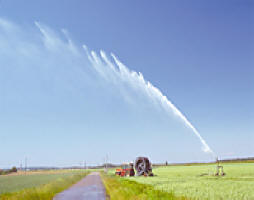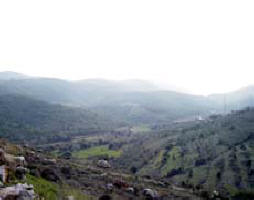 Autonomous Desalination Units based on Renewable Energy Systems
Autonomous Desalination Units based on Renewable Energy Systems
- ADU-RES is a Coordination Action aiming to bridge the gap between successful Research and Development work and commercialisation of renewable energy powered desalination systems. The work is focused on stand alone systems, which will cover part of the pressing water needs of arid rural areas in the Mediterranean region.
| Project number | 509093 | ||
|---|---|---|---|
| Subject(s) | DRINKING WATER AND SANITATION : COMMON PROCESSES OF PURIFICATION AND TREATMENT | ||
| Acronym | ADU-RES | ||
| Geographical coverage | Algeria, Egypt, Greece, Italy, Jordan, Lebanon, Morocco, Palestine, Spain, Tunisia | ||
| Budget (in €) | 620000 | ||
| Programme | INCO MED (FP6) | ||
| Web site | http://www.adu-res.org/ | ||
| Objectives | The international consortium has focused its work to the following two main objectives:
|
||
| Results | 1. Many pilot autonomous desalination units powered by renewable energy, with outputs of a few cubic meters per day are operating successfully under the supervision of water and research institutes. Still, commercial applications remain rare. Now is the time to strengthen and unite research work for the design of robust and cost-effective desalination plants that operate autonomously on RES. - Some of the remaining scientific and technical challenges are: • Radical cost reduction 2. Wide-scale implementation of autonomous desalination units require favourable legislative and institutional framework conditions. ADU-RES will examine the relevant legislation in the EU and in various Mediterranean countries and elaborate a policy initiative for boosting renewable energy based desalination. Concrete suggestions for how to improve existing EU legislation, such as the EU Water Framework Directive, will be formulated. - ADU-RES will reach policy makers and think tanks, providing them with
expert analysis and recommendations for the promotion of desalination units.
Widespread circulation of reports, methodology and guidelines amongst the
research and industry communities will initiate and maintain a fruitful
interdisciplinary dialogue on the issue |
||
| Period | [21/09/2005 - 30/09/2006] | ||
 you are not logged in
you are not logged in





